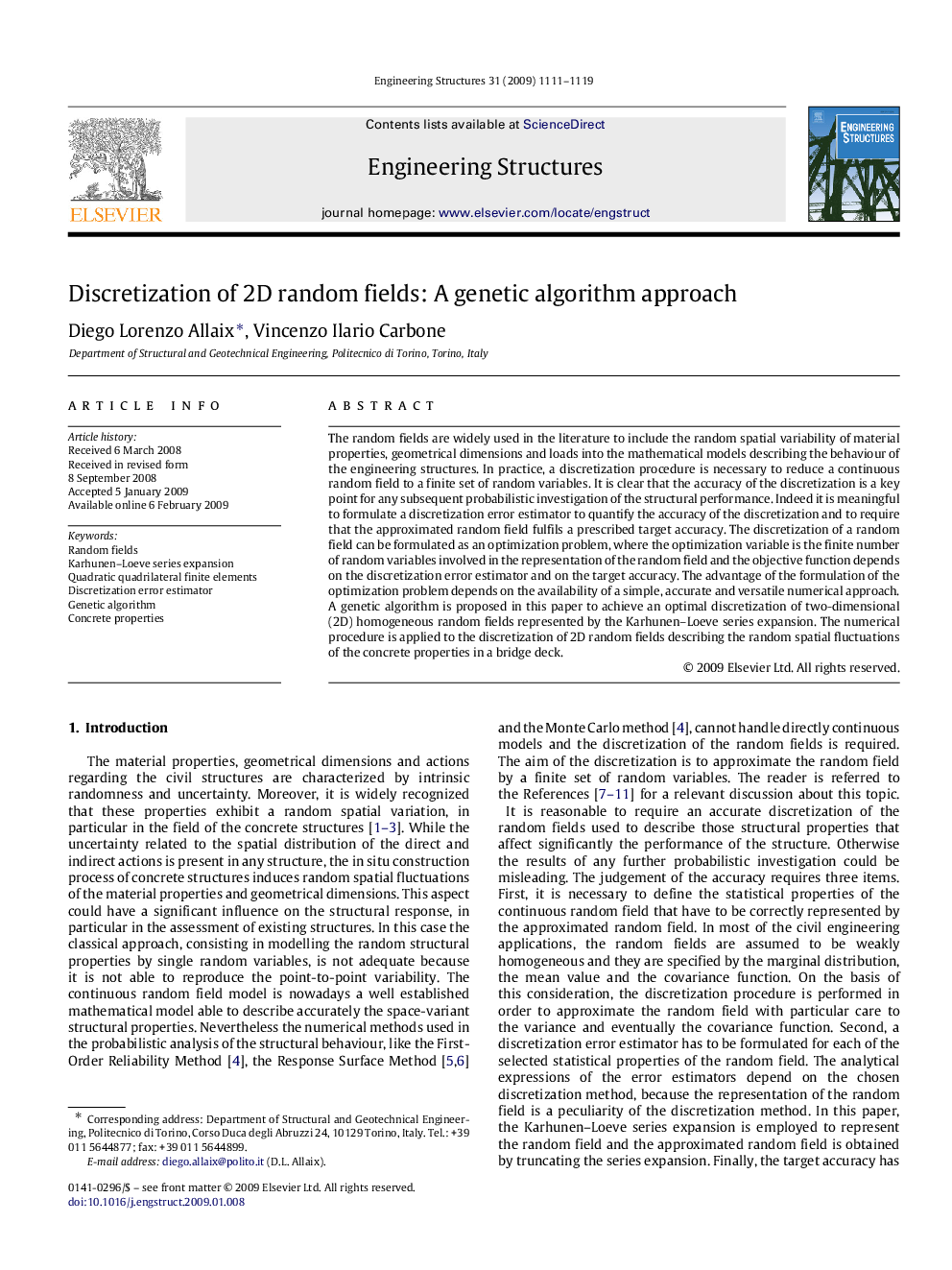| کد مقاله | کد نشریه | سال انتشار | مقاله انگلیسی | نسخه تمام متن |
|---|---|---|---|---|
| 268317 | 504430 | 2009 | 9 صفحه PDF | دانلود رایگان |

The random fields are widely used in the literature to include the random spatial variability of material properties, geometrical dimensions and loads into the mathematical models describing the behaviour of the engineering structures. In practice, a discretization procedure is necessary to reduce a continuous random field to a finite set of random variables. It is clear that the accuracy of the discretization is a key point for any subsequent probabilistic investigation of the structural performance. Indeed it is meaningful to formulate a discretization error estimator to quantify the accuracy of the discretization and to require that the approximated random field fulfils a prescribed target accuracy. The discretization of a random field can be formulated as an optimization problem, where the optimization variable is the finite number of random variables involved in the representation of the random field and the objective function depends on the discretization error estimator and on the target accuracy. The advantage of the formulation of the optimization problem depends on the availability of a simple, accurate and versatile numerical approach. A genetic algorithm is proposed in this paper to achieve an optimal discretization of two-dimensional (2D) homogeneous random fields represented by the Karhunen–Loeve series expansion. The numerical procedure is applied to the discretization of 2D random fields describing the random spatial fluctuations of the concrete properties in a bridge deck.
Journal: Engineering Structures - Volume 31, Issue 5, May 2009, Pages 1111–1119